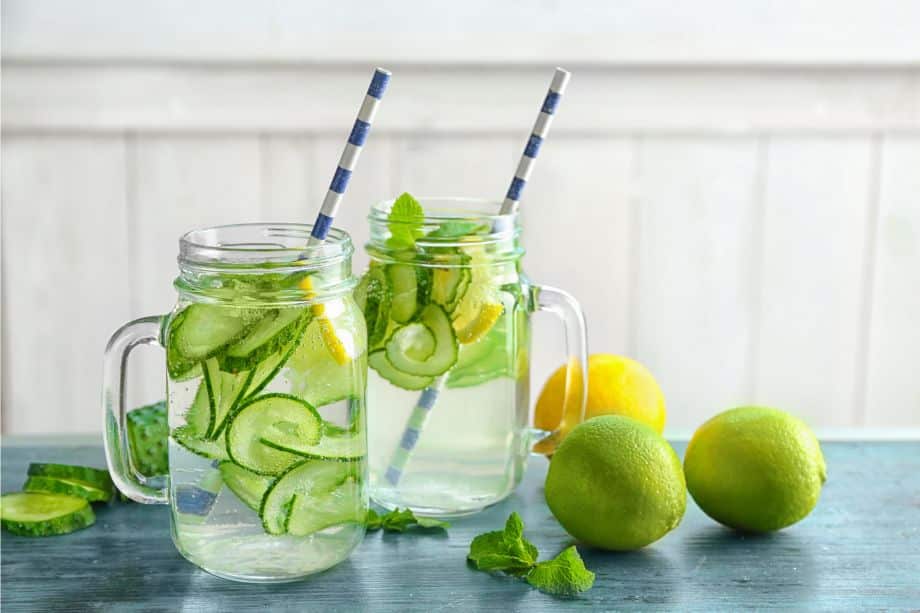We all love a refreshing fizzy pop or a sweetened iced tea now and then, but have you ever stopped to consider the impact these sugary drinks have on your teeth? For parents, health blog readers, and dental health enthusiasts, understanding how sugary beverages contribute to cavities can be a game-changer.
In this blog post, we’ll uncover the hidden dangers of sugary drinks, explain how they lead to tooth decay, and share practical tips for protecting your teeth.
The Impact of Sugary Drinks on Dental Health

Sugary drinks are more than just empty calories; they pose a significant threat to dental health. The sugar in these beverages interacts with bacteria in the mouth, leading to the formation of acids that erode tooth enamel. This process can result in cavities and other oral health issues. But it’s not just the sugar that’s problematic—many sugary drinks are also highly acidic, compounding the damage.
Recent statistics reveal a worrying trend. According to the World Health Organization (WHO), global consumption of sugary drinks has skyrocketed in recent decades. The high sugar content in these beverages means they pack a double punch against our teeth, contributing to increased rates of tooth decay worldwide. Understanding the mechanics of how cavities form can help us appreciate the full extent of the problem.
How Cavities Form
Cavities, also known as dental caries, are a result of a process called demineralisation. When we eat or drink something sugary, the bacteria in our mouths feast on these sugars. They produce acids as a byproduct, which then attack the tooth enamel—the hard, protective outer layer of our teeth. Over time, this acid attack can create tiny holes in the enamel, eventually developing into cavities.
The mouth’s natural defence mechanism is saliva, which helps neutralise these acids and repair the enamel through a process called remineralisation. However, if sugary drinks are consumed frequently, the mouth doesn’t get enough time to recover, leading to a higher risk of cavities. Knowing the relationship between sugary drinks and cavities can help us make better choices for our dental health.
The Relationship Between Sugary Drinks and Cavities
Understanding the connection between sugary drinks and cavities is crucial for making informed dietary choices. When sugary drinks are consumed, the high sugar content feeds oral bacteria like Streptococcus mutans, which thrive on sugars and produce acid as a metabolic byproduct. This acid is what erodes the enamel and creates cavities.
Sugary drinks are often acidic themselves, with fizzy drinks and sports drinks being prime examples. This acidity can exacerbate the demineralisation process, weakening the enamel even further. Additionally, the sticky consistency of some sugary drinks, such as fruit juices, can cling to teeth, providing a constant source of fuel for bacteria. The more frequently you consume these drinks, the greater the risk of tooth decay.
Research backs up these claims. Studies have shown a strong correlation between the consumption of sugary drinks and an increase in cavities. For example, a single can of soda can contain up to 10 teaspoons of sugar, significantly raising the risk of tooth decay. By understanding this relationship, we can take steps to protect our teeth.
Tips for Protecting Your Teeth

Protecting your teeth from the harmful effects of sugary drinks doesn’t mean you have to give them up entirely. Here are some practical tips to reduce the risk of cavities while still enjoying your favourite beverages:
- Limit Sugary Drinks: The most effective way to protect your teeth is to limit your consumption of sugary drinks. Try to replace them with healthier options like water, unsweetened tea, or sparkling water flavoured with fruit.
- Rinse Your Mouth: If you do consume a sugary drink, rinse your mouth with water afterwards to help remove any lingering sugar and acid. This simple step can make a big difference in reducing the risk of cavities.
- Use a Straw: Drinking sugary beverages through a straw can help minimise contact with your teeth, reducing the risk of acid erosion.
- Wait Before Brushing: After consuming a sugary or acidic drink, wait at least 30 minutes before brushing your teeth. Brushing immediately can spread the acid and cause further enamel damage.
- Consider Dental Sealants: Dental sealants are protective coatings applied to the chewing surfaces of back teeth. They can provide an extra layer of defence against cavities, especially in children.
- Fluoride Treatments: Regular fluoride treatments can help strengthen tooth enamel and make your teeth more resistant to decay. Discuss with your dentist about incorporating fluoride treatments into your dental care routine, especially if you’re at a higher risk of cavities.
By incorporating these tips into your daily routine, you can enjoy sugary drinks in moderation without compromising your dental health.
Alternatives to Sugary Drinks

Switching to healthier beverage options can significantly benefit your dental health. Here are some delicious alternatives to sugary drinks that can satisfy your cravings without harming your teeth:
- Water: The best choice for hydration and dental health. Add a slice of lemon or cucumber for a refreshing twist.
- Unsweetened Tea: Whether hot or iced, unsweetened tea is a great alternative to sugary drinks. Green tea, in particular, contains antioxidants that can benefit oral health.
- Milk: Packed with calcium and vitamin D, milk is excellent for strengthening teeth and bones.
- Fruit-Infused Water: Create your own flavoured water by adding slices of fruit, herbs, or vegetables. This is a tasty and healthy alternative to sugary drinks.
- Smoothies: Make your own smoothies using fresh fruits and vegetables. Avoid adding sugar or sweetened yoghurt to keep them healthy.
- Sparkling Water: If you crave the fizz of soda, try sparkling water. You can add a splash of natural fruit juice for flavour without the added sugar.
These alternatives not only support dental health but also offer various other health benefits, making them a smart choice for overall well-being.
The Importance of Dental Health and Diet
Maintaining good dental health goes beyond regular brushing and flossing; it also involves paying attention to your diet. The foods and drinks we consume play a significant role in our oral health. A diet high in sugar and acidic beverages can lead to tooth decay, while a balanced diet rich in vitamins and minerals can strengthen teeth and gums.
Adopting healthier dietary habits can have a profound impact on your dental health. Limiting sugary drinks and opting for healthier alternatives can reduce the risk of cavities and other oral health issues. It’s never too late to make positive changes that benefit your teeth and overall health.
Conclusion
Sugary drinks may be a treat, but their impact on dental health is far from sweet. By understanding how these beverages contribute to cavities and taking steps to protect your teeth, you can enjoy them in moderation without compromising your oral health. Remember, a healthy smile is a reflection of a healthy lifestyle.
For those looking to take their dental health to the next level, consider booking an appointment at Hamilton Dental Centre. Our experienced team can provide personalised advice and treatments to help you maintain a radiant smile. Don’t wait—schedule your checkup today and take the first step towards better dental health.
FAQs
Why are sugary drinks bad for your teeth?
Sugary drinks feed oral bacteria that produce acid, which erodes tooth enamel and leads to cavities. Their high acidity also contributes to enamel wear.
How can I protect my teeth if I enjoy sugary drinks?
Limit consumption, rinse your mouth with water after drinking, use a straw, and wait 30 minutes before brushing your teeth.
What are some healthy alternatives to sugary drinks?
Water, unsweetened tea, milk, fruit-infused water, smoothies, and sparkling water are all excellent choices for dental health.
How often should I visit the dentist for checkups?
It’s recommended to visit the dentist every six months for routine checkups and cleanings. However, your dentist may suggest a different schedule based on your individual needs.
Can dental sealants help prevent cavities?
Yes, dental sealants provide a protective barrier on the chewing surfaces of teeth, making them less susceptible to decay.
By understanding the risks associated with sugary drinks and taking proactive steps to protect your teeth, you can maintain optimal dental health and enjoy a beautiful smile for years to come.
Related Posts
Site map
Services
Contact Us
T: 07 854 8905
E: info@thehdc.co.nz
3/111 Thomas Road,
Rototuna, Hamilton
copyright © 2025 Hamilton Dental Centre | Credit Terms | Web development by Digital Hothouse

